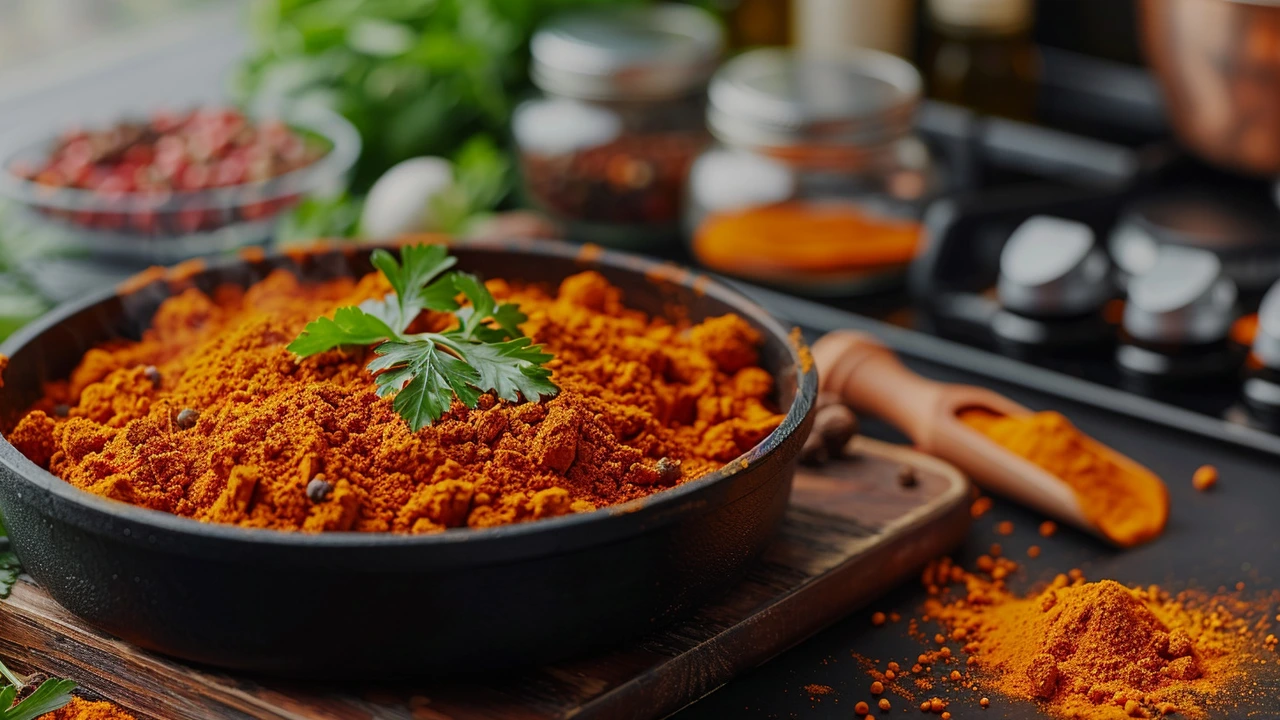Turmeric benefits: what it helps with and how to use it
Turmeric is a bright yellow spice used in cooking and traditional medicine. The main active compound, curcumin, has antioxidant and anti-inflammatory effects. That makes turmeric useful for soreness, digestion, and everyday inflammation. Below you'll find clear, practical ways to use turmeric, realistic dose ranges, and safety tips so you can get the benefits without surprises.
What turmeric can help with
For joint pain and stiffness, several clinical trials report that curcumin supplements can reduce pain and improve mobility, sometimes rivaling standard pain relievers for mild osteoarthritis. For digestion, turmeric can reduce bloating and support healthy digestion when taken with meals. Curcumin also shows promise for heart health by improving blood vessel function and lowering markers of inflammation. Early research suggests modest support for mood and brain health, mostly from its anti-inflammatory and antioxidant actions.
Remember: turmeric in food gives gentle benefits over time, while concentrated supplements deliver stronger effects in shorter periods. If you want noticeable relief from pain or inflammation, a standardized curcumin supplement is usually more effective than a pinch of ground turmeric in a curry.
How to use turmeric daily
Cooking tips: add turmeric to soups, rice, roasted veggies, or smoothies. Finish dishes with a splash of oil or a bit of butter — curcumin dissolves better in fat. Always add black pepper (a pinch) to boost absorption; piperine in black pepper can increase curcumin uptake a lot.
Easy home drink: golden milk. Warm 1 cup milk (dairy or plant), stir in 1/2–1 teaspoon turmeric, a pinch of black pepper, and 1 teaspoon honey or maple syrup. Drink once a day for gentle support.
Supplement guidelines: common curcumin formulas provide 500–1,000 mg per dose, often taken once or twice daily. Many effective products include piperine or special formulations for better absorption. Start low (for example 500 mg daily) and increase if needed and tolerated. For short-term pain relief, some people use 1,000–2,000 mg per day under guidance.
Safety and interactions
Turmeric and curcumin are safe for most people at culinary amounts. Higher supplement doses can cause mild stomach upset, nausea, or diarrhea. Curcumin can slow blood clotting — avoid high doses before surgery and talk to your doctor if you take blood thinners like warfarin. If you have gallstones or bile duct issues, skip high-dose supplements. Also check with your doctor if you take diabetes or blood-pressure medicines, because turmeric can affect dosing.
If you’re pregnant or breastfeeding, stick to food amounts and ask your provider before using supplements. If a supplement causes new symptoms or if pain gets worse despite use, see a healthcare professional.
Practical rule: use food-based turmeric for daily wellness and consider a standardized curcumin supplement for targeted issues like joint pain — but always check interactions and start with a low dose.

Turmeric's Health Prowess: Understanding Its Powerful Benefits
This article explores the remarkable health benefits of turmeric, a vibrant spice known for its potent medicinal properties. Readers will discover how turmeric's main component, curcumin, plays a crucial role in combating inflammation and acts as a powerful antioxidant. The piece also delves into turmeric's potential effects on brain health, its role in preventing chronic diseases, and how it can aid in digestion and pain relief. Practical tips on incorporating turmeric into a daily diet are also provided, making this spice an indispensable part of a healthy lifestyle.
Read More